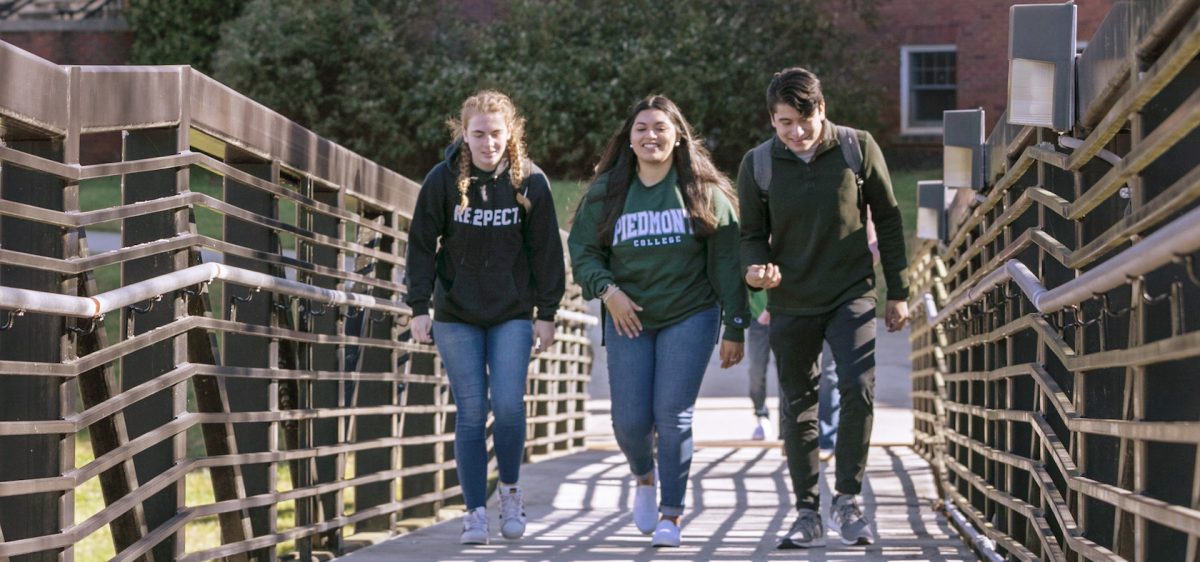By JANIE HARRIS
Sports Editor, Interim EIC
When English professor, Lisa Hodgens, was a young girl growing up in Alabama, she encountered the dean of the school of medicine at the University of Alabama at Birmingham.
This dean often encouraged his medical students to pick up an English minor. While working her way through graduate school, she finally asked him why.
“You know I thought that he would say something about writing or communication, but no he said, ‘If you read literature, you are imagining what it is like to be another person, and that is what I want my doctors to do,’” said Hodgens.
The American Association of Colleges and Universities defines a liberal arts education as an approach to learning that empowers individuals and prepares them to deal with complexity, diversity and change.
It goes on to explain that this type of education provides students with broad knowledge of the world with an emphasis on social responsibility, communication skills, problem solving skills as well as an ability to apply this knowledge and these skills in the real world.
“The way I see it is that it is a preparation for life, and it’s not a vocational approach to college,” said Hodgens.
She explained that it is about living a rich and full life which could include getting a job, but that is not the main focus. It is more about educating those who want to be educated.
This education should translate into the student becoming a successful citizen.
But some argue that education is changing.
The Chronicle of Higher Education recently reported that after Feb. 28, 1967, the main reason to attend college was to get a job. But what happened on Feb. 28 that changed so many students’ minds about the purpose of their education?
Newly elected governor Ronald Regan stated that the state budget was in crisis and some luxuries would have to be cut.
At the time, California boasted about having a superior higher education system, and Regan promised he would do nothing to harm it. He, however, said that there were some systems that should go. He said that tax payers shouldn’t be “subsidizing intellectual curiosity.”
“On that day in 1967, Reagan crystallized what has since become a conventional wisdom about college,” reported the Chronicle of Higher Education.
The Chronicle of Higher Education also reported about 75 percent of college freshmen stated that it was essential to develop a meaningful philosophy of life, but about a third of freshmen felt that being well off financially was essential. Today the fractions are flipped.
And Hodgens says that many students believe they are here just to learn for one job.
“If you are just training for one particular job then what is going to happen when that job disappears?” said Hodgens.
Today, the average works stays at a job for about four years before switching to another according to data from the Bureau of Labor Statistics, and it reports that those four years are only to become shorter from here.
“A liberal arts education is important because you have this broad base of skills,” said Hodgens.
She even believes that Piedmont should add a business course about personal finances to students’ general education requirements that could help them manage their own money in the future.
Hodgens explained that somehow the idea of a liberal arts education became tied with an idea of elitism rather than becoming a better citizen.
“We are privileged to have the kind of education that we do have, but we take it so much for granted. It is like we are being made to get an education when people are dying to have the kind of educational freedoms that we have,” said Hodgens.
But the idea of going to college to learn what we have to in order to get a job still lurks in students’ minds. Hodgens said that this is a powerful cultural message.
The Chronicle of Higher Education reported that Cathrine Liu said a liberal arts education was the postwar era’s dream, but after the Cold War, college became viewed as a redistributive process where schools teach vocational skills so people can get jobs. It is now all about training.
“But it misses the point because there are all kinds of things in our life that we need preparation for, and a job is one of those. I think colleges are more cognate of the fact that they need to help their students find positions and professions,”
Recent media topics loom in students’ heads. Even the Chronicle of Higher Education said, “Today’s news stories lament bartenders with chemistry degrees.”
Even Hodgens said the her daughter, whom received a degree from a liberal arts school, struggles with the idea that after receiving her degree she only makes so much money.
Hodgens argues that her daughter has not lived her life yet, and that she is currently using the skills she learned to make a better life for herself.
Employers want students who have more skills, and according to Hodgens that is what a liberal arts education can give a student.
“They want engineers who can build a bridge and think about its effects on the environment and surrounding community. Nurses should know how to draw blood and consider the cultural influences that might keep patients from taking their medication,” reported the Chronicle of Higher Education.
But for those who question, why do I have to learn all this? The answer is you don’t have to.
Hodgens said: “You don’t have to go to college. Nobody has to go to college. It is your choice and you’re lucky enough to be able to make that choice.”







